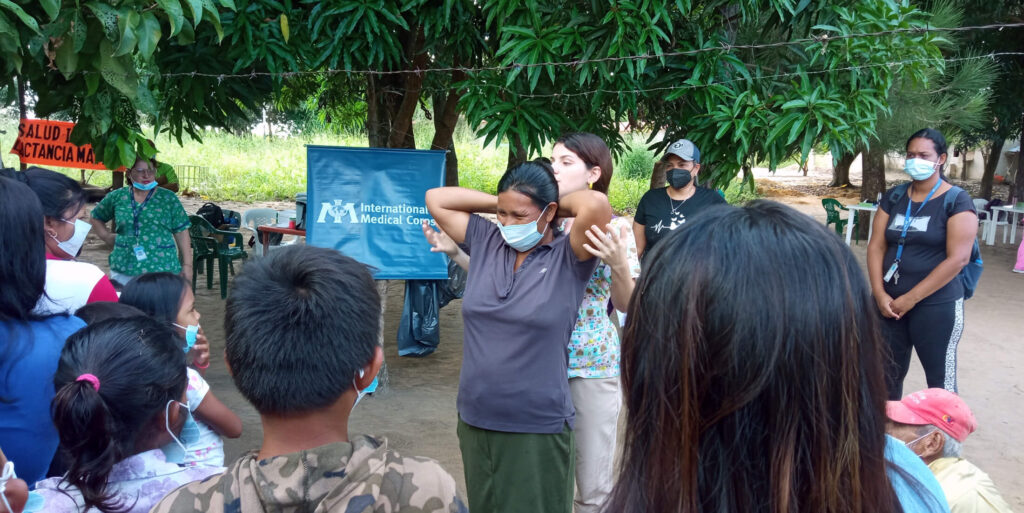When International Medical Corps staff members visit the small and remote villages in the Orinoco River Basin of Venezuela, the local populations are eager to learn how to take care of their health. Without easy access to the state healthcare system, our mobile medical units (MMUs) often provide the best—and only—access to healthcare services and education available to the indigenous people living in villages of the Orinoco River Basin. In addition to providing lifesaving care, our teams provide critical health information that builds self-reliance.
Our staff believes that the relationships we build in these small villages are key to our success in delivering healthcare and fostering self-reliance. Zura Vasquez, a community health promoter on International Medical Corps’ Venezuela team, says, “It is not just about coming and giving material things. It is about giving love.” When reflecting on her visits to the villages of the Orinoco River Basin, she says, “These kids are coming up to you and they will hug you, they will talk to you about what their daily life is like, they tell you what they do at home, what their parents do—and it’s not that parents don’t give them love, but it’s another type of love that the kids also need. They need to learn, and they need to be inspired.”
Nurse Elsa in San Antonio Del Orinoco
Elsa Requena is a nurse who lives and works in San Antonio Del Orinoco, a remote indigenous community in Bolivar state. Elsa has provided healthcare to her neighbors for more than 20 years, doing her best to overcome challenges like limited access to supplies, medicines and equipment. “She is a very communicative and dedicated person,” says Dr. Carlos Brito, a Health Program Officer on our Venezuela team. “Nurse Elsa opens the outpatient clinic every day, even when there is no other medical staff assigned there. She is highly aware of the health situations of San Antonio and the surrounding areas. Her neighbors and local health workers look to her for guidance.”
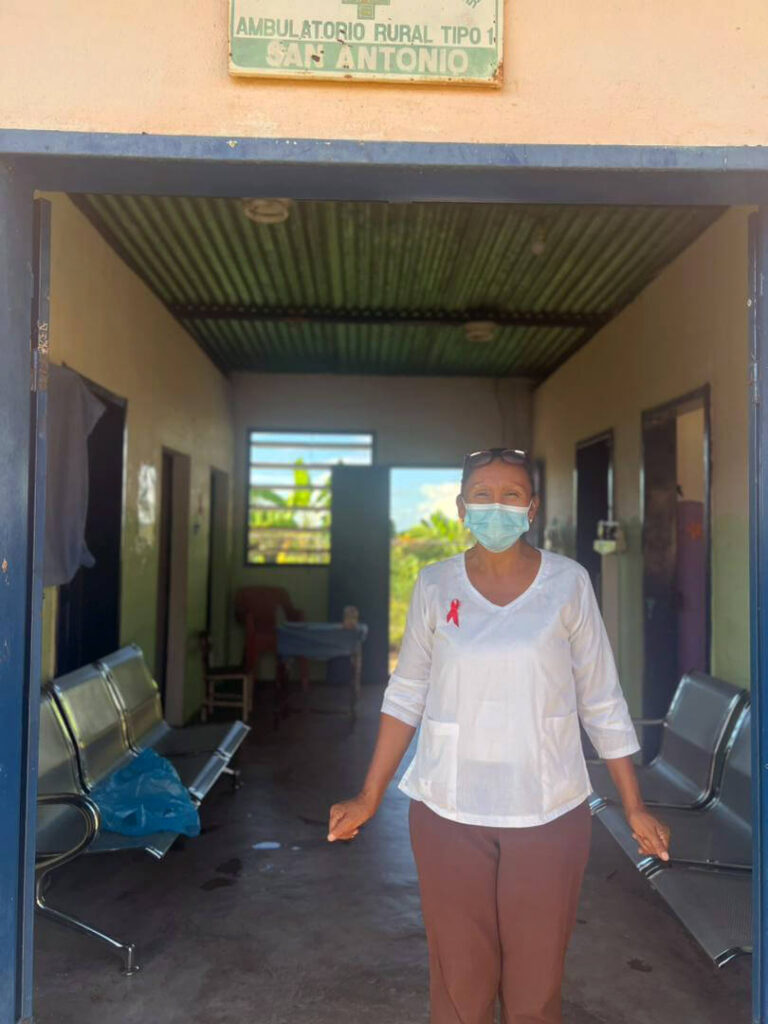
Elsa’s patients include people who need specialized care for malnutrition, infection and mental health. So when the International Medical Corps MMU first came to San Antonio Del Orinoco in 2019, Elsa was delighted. Our team provided specialized and primary health services, psychosocial support, health training and education to the people of the village, and has continued to provide these services for more than five years, improving local health outcomes and community well-being, especially among the most underserved residents.


During our years of deployment in San Antonio Del Orinoco, International Medical Corps’ team in Venezuela has also trained Nurse Elsa on first aid, infection prevention and control (IPC), maternal and newborn health, and mental health services. “The training gives birth to love,” Elsa says. Our staff has also provided psychosocial support to Elsa and her family, which has helped her with personal and professional challenges. She tells us, “The psychosocial support has helped a lot with my son, who had some difficulties at school.”
A New Outpatient Facility in Las Bombitas
It takes nearly a day of travel on foot to reach the healthcare facility nearest to Las Bombitas, a village of mostly displaced Kariña indigenous people. When the people of the village do finally reach the facility, relationships with healthcare staff are strained and mostly transactional—unlike the Spanish that most Venezuelans speak, many of the Kariña people primarily speak Carinan, a Carib language. At the healthcare facility, services are limited, so the MMU deployed by International Medical Corps to Las Bombitas is a lifeline to healthcare, education and culturally appropriate services.
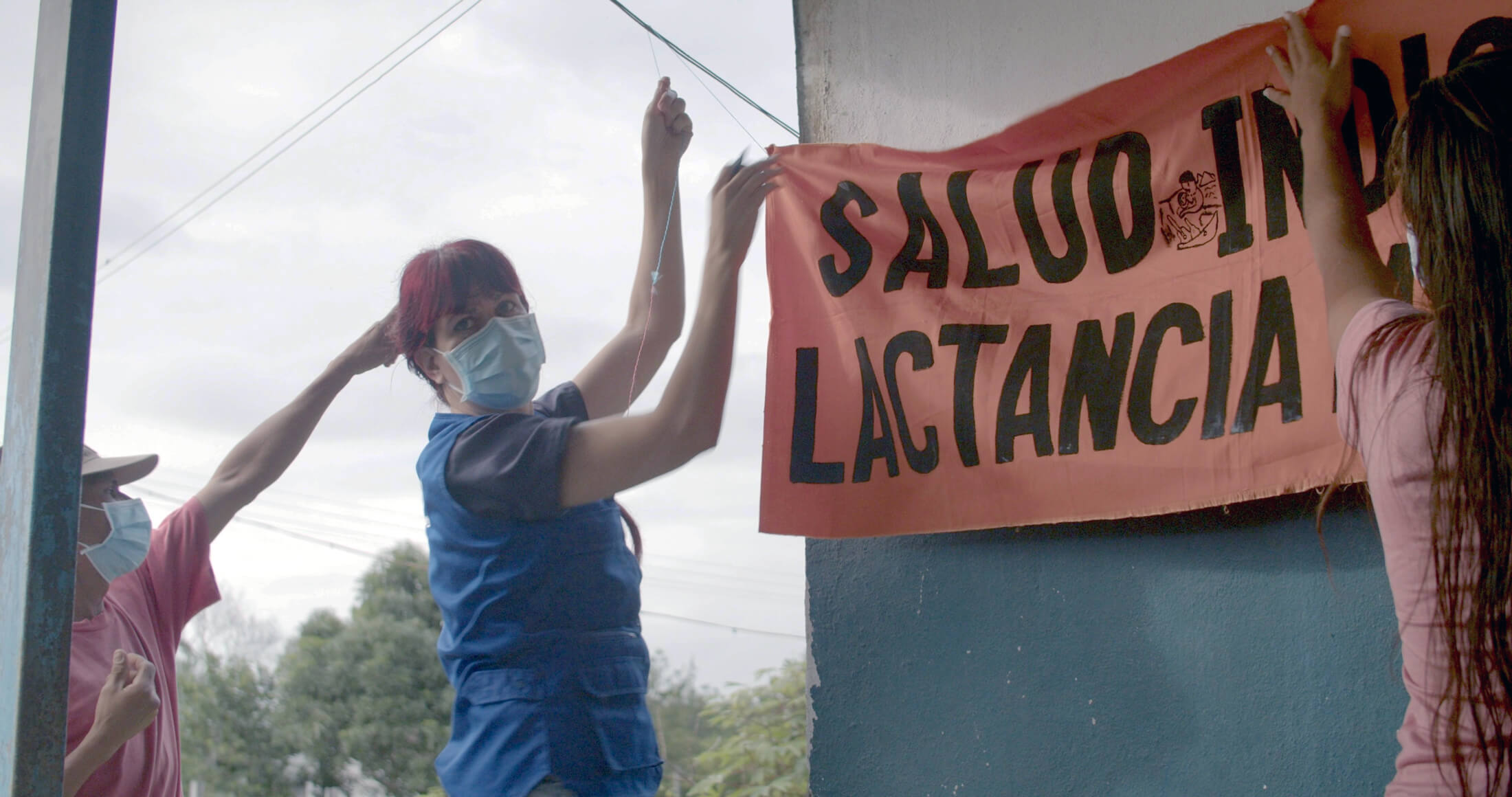
The people of Las Bombitas constructed an outpatient clinic for International Medical Corps’ MMU team and their own local community health worker. Before the community built the structure, people would usually receive consultations in an open, common space. Since we began visiting the village, the Las Bombitas community has begun promoting the MMU’s pediatric services in nearby villages and invited children to receive care when the MMU visits Las Bombitas.
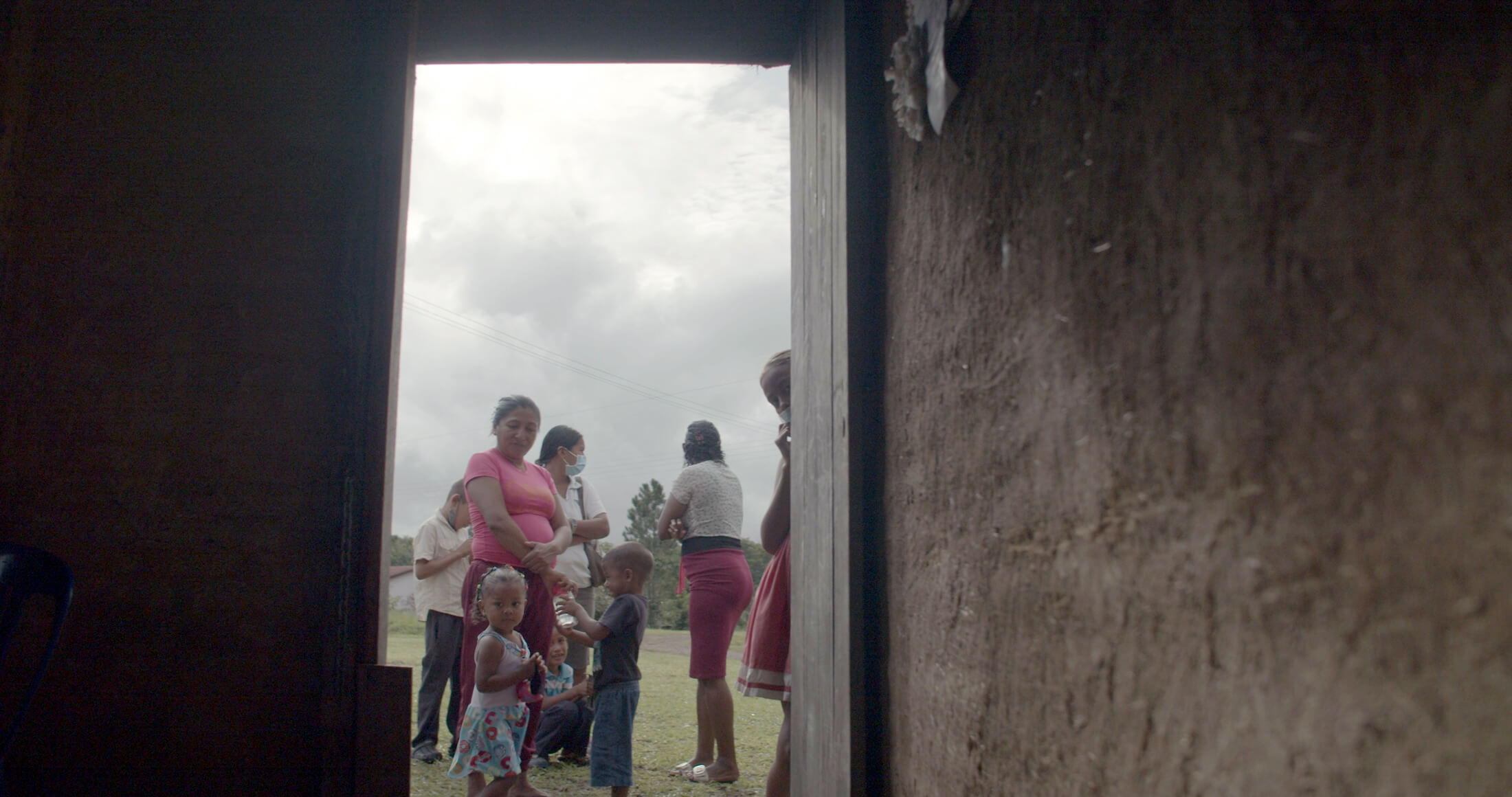
Lifesaving Maternal Care in Camurica
In Camurica village, the nationwide shortage of medicine and food, as well as the lack of infrastructure, has posed a significant problem to the indigenous people who live there. Before the MMU arrived in Camurica, Maria Chiraspo was pregnant with her fourth child and was unable to visit any health providers for prenatal care. During her consultation with the MMU team, Maria was excited to receive an ultrasound and see her baby for the first time. However, the ultrasound also revealed that the umbilical cord was wrapped around the baby’s neck and that it would be necessary for her to deliver at the hospital in the city.
Without money for transportation or support to care for their other children, Maria had no choice but to give birth at home in Camurica. Luckily, she gave birth to her fourth child with only minor complications. But the delivery caused an infection and Maria contracted a fever. Fortunately, the MMU staff had anticipated the risk to Maria’s health and had provided her with antibiotics. She took the medicine and fully recovered.


Today, Maria is raising her four children in Camurica, where our MMU staff continues to provide her family and neighbors with healthcare services, as well as education on maternal and child health, disease prevention and nutrition. Our team has also set up a health line that the people of Camurica can call to leave messages and get health information, even after the MMU has left the village.
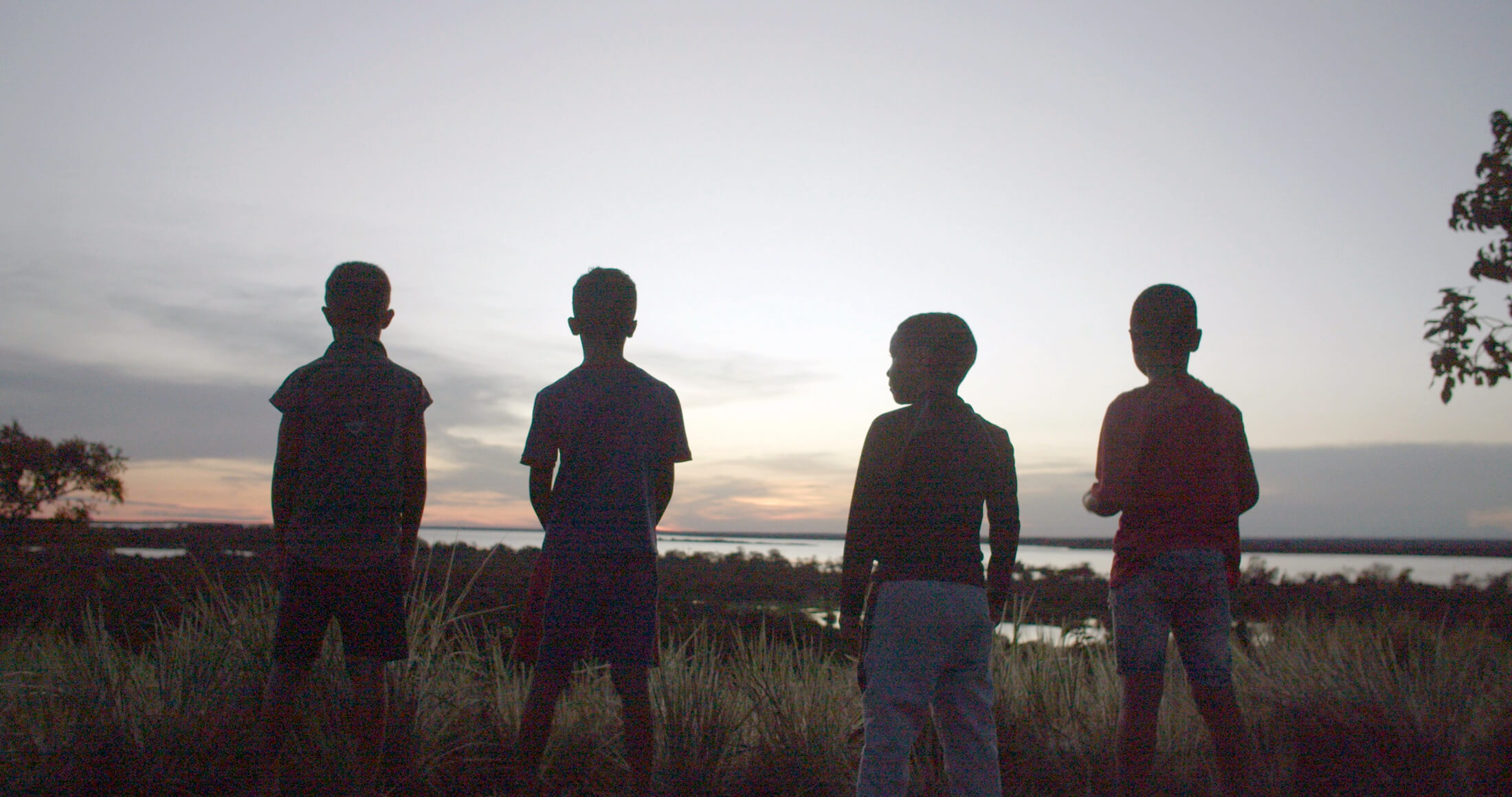
International Medical Corps is committed to addressing the humanitarian needs and improving the health and well-being of the Venezuelan people. Since starting operations in 2019, we have reached more than 3.5 million people in 10 states, supported more than 120 health centers, and distributed medications, medical supplies and equipment valued at nearly $2 million.
To keep up to date on International Medical Corps’ work to help communities facing crisis around the world, sign up for our email list.
